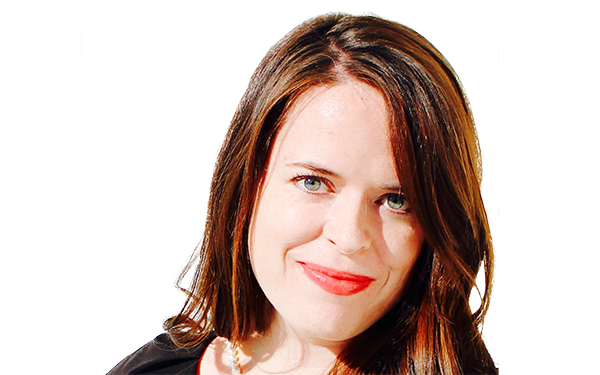Educate Nebraska: Inside the Ambitious Plan to Revive State’s Sputtering Charter Movement

EDlection 2016 is The Seventy Four's ongoing coverage of state-level education news, issues and leaders in the run up to 2016 elections. (Among our previous stories in this series, stories from Connecticut, Iowa, Minnesota, Nevada, Ohio and Pennsylvania. See the latest stories here). Nebraska’s first caucus is scheduled for March 5.
Updated Jan. 11
When Katie Linehan was 16, a close family friend urged her to start tutoring four young brothers from a struggling African-American family in north Omaha, one of the most dangerous and poverty-stricken parts of the city.
A few times a week, the teenager traveled from her home in Omaha's well-kept Westside neighborhood to the northern housing projects to help the boys with homework. Friendships quickly blossomed, and soon she was bringing school friends over to join her in the tutoring sessions with the boys, who were a few years younger. They went skating, saw movies, exchanged Christmas presents and did back-to-school shopping together.
Over the years, through law school and her work as an aide in the single-house Nebraska Legislature, Linehan kept in touch with the young men, cheering as one boy graduated from high school. Two of them never graduated; one is now in jail.
This month, Linehan, 32, who recently returned to Omaha after a stint as a teacher at a Success Academy charter school in New York City, launched Educate Nebraska, a nonprofit she hopes can be a vehicle to create grassroots support for improving public education in Omaha and throughout the Cornhusker State.
Linehan traces her passion for education reform back to those early, poignant experiences with the boys, and said her group looks to educate and empower families that may be similarly disadvantaged.
“What I noticed (at the time) was, these are extremely intelligent and capable little boys. And I also noticed a major difference in the quality of their schools, just from what I could observe as a 16-year-old, and the public schools I went to a little bit west of there. And so I thought, ‘Something’s not right about that.’”
While Nebraska students perform above or on par overall with students in other states, according to National Assessment of Educational Progress statistics, the achievement gap between white students and those of color has grown. Nebraska has one of the lowest high school graduation rates for black male students, 50 percent, compared to 86 percent for white males, according to a report by the Schott Foundation for Public Education.
Educating parents about charter schools and building support for school choice in an effort to close that gap is among the organization’s top priorities, Linehan said.
Nebraska is one of only seven states that does not allow charter schools by law, not including Washington state, where advocates are fighting to overturn a 2015 ruling that rendered charters unconstitutional. (Read The Seventy Four’s complete coverage of the Washington state charter crisis)
Three iterations of a charter bill have failed in the Nebraska Legislature, most recently in 2015. Linehan has been instrumental in trying to get a bill passed, while also advocating for tuition tax credits for low-income parents seeking alternative schools and support for an improved school accountability system.
Omaha Public Schools is the largest district in the state with 51,900 students. Efforts to desegregate the city schools over the years have been complicated by a 2006 law (later repealed) that divided the city into three racially identifiable districts. The lingering tension from the political battles of the last decade make Omaha ripe for an infusion of alternative options — a fact of which Linehan is well-aware.
“North Omaha is desperate for something that works,” she said.
Educate Nebraska will share data and other educational materials with parents and teachers and spread the message that “success is, in fact, possible and it’s happening elsewhere and that Nebraska’s students deserve that success,” Linehan said.
“If we can educate people on that and if we change the minds of people and help inform people who haven’t thought about it or who have been disempowered by a broken system, I will consider our first year successful,” she said.
Ally Milder, the late, longtime Nebraska Republican and congressional aide, was the family friend who encouraged a 16-year-old Linehan to start the tutoring project with the boys, whom Milder also mentored. Milder’s work on the state Board of Education also influenced Linehan’s path, she said.
Later, Linehan’s years living in New Orleans while attending Loyola University, and Washington, D.C., during the tumultuous tenure of former schools Chancellor Michelle Rhee informed and reinforced her views that Omaha could — and should — look at how other urban centers around the country had transformed public education and improve upon their efforts.
“I said ‘OK, this is resonating with me and I want to work to do this and I want to impact my hometown and do something in north Omaha,’” she said.
Previously, Linehan co-founded the Nebraska Alliance for Quality Education while working to pass a state charter bill; that organization is now defunct. The effort drew criticism from union leaders and Democrats, many of whom oppose the idea of charter schools in Omaha and fear money they’d draw from the public school system would disenfranchise public school students.
Linehan also helped found the pro-charter group The LEARN Coalition (Liberate, Educate and Reform Nebraska).
Whether reformers like her and other stakeholders in Nebraska’s public education sector will find common ground remains to be seen.
Nancy Fulton, president of the Nebraska State Education Association, said public discussions on improving schools have “focused too narrowly” on the role of charter schools, and she noted their record of success in other places has been mixed.
“In Nebraska, innovation already takes place without fanfare in many neighborhood public schools and magnet schools, and NSEA is proud to represent public school educators who work in Nebraska’s public schools,” Fulton said in a statement. “It’s time to remove barriers to innovation, so that all educators and all public schools — not just charters — can more effectively address the needs of our diverse student populations.”
Linehan’s family is well known in state and national politics. Her mother, Lou Ann Linehan, was chief of staff to former U.S. Defense Secretary Charles Hagel, a fellow Nebraskan, and also worked in Iraq with the State Department. A Republican, Lou Ann Linehan is considering running for an open seat in the Nebraska state Legislature, the Omaha World Herald reported in November.
Linehan herself campaigned in 2014 in support of Gov. Pete Ricketts and in 2013, she advised reform-minded Massachusetts native Michael Sentance during a failed bid to become Nebraska state education commissioner.
Linehan and her supporters will be among 300 people expected at a rally on the steps of the Capitol Jan. 28 during School Choice Week.
Educate Nebraska currently has one other employee, Development Director Preston Harris. Linehan said she’s continuing to build the board of directors and a stable of advisers. She hopes to hire other staffers as she secures more funding. The organization has not publicly identified its donors.
Advisory board member Gillian Quinn-Pineda, an Omaha native who now runs a KIPP charter school in Houston, said she’s excited to pursue partnerships with the public and private sectors that will bring new resources into Nebraska schools.
As teenagers, Linehan and Quinn-Pineda attended Duchesne Academy of the Sacred Heart together in Omaha.
“Our being (teachers) in these other schools and both of us going to Duchesne helped us to see some of the inequity that exists in cities,” Quinn-Pineda said.
Get stories like these delivered straight to your inbox. Sign up for The 74 Newsletter

;)
